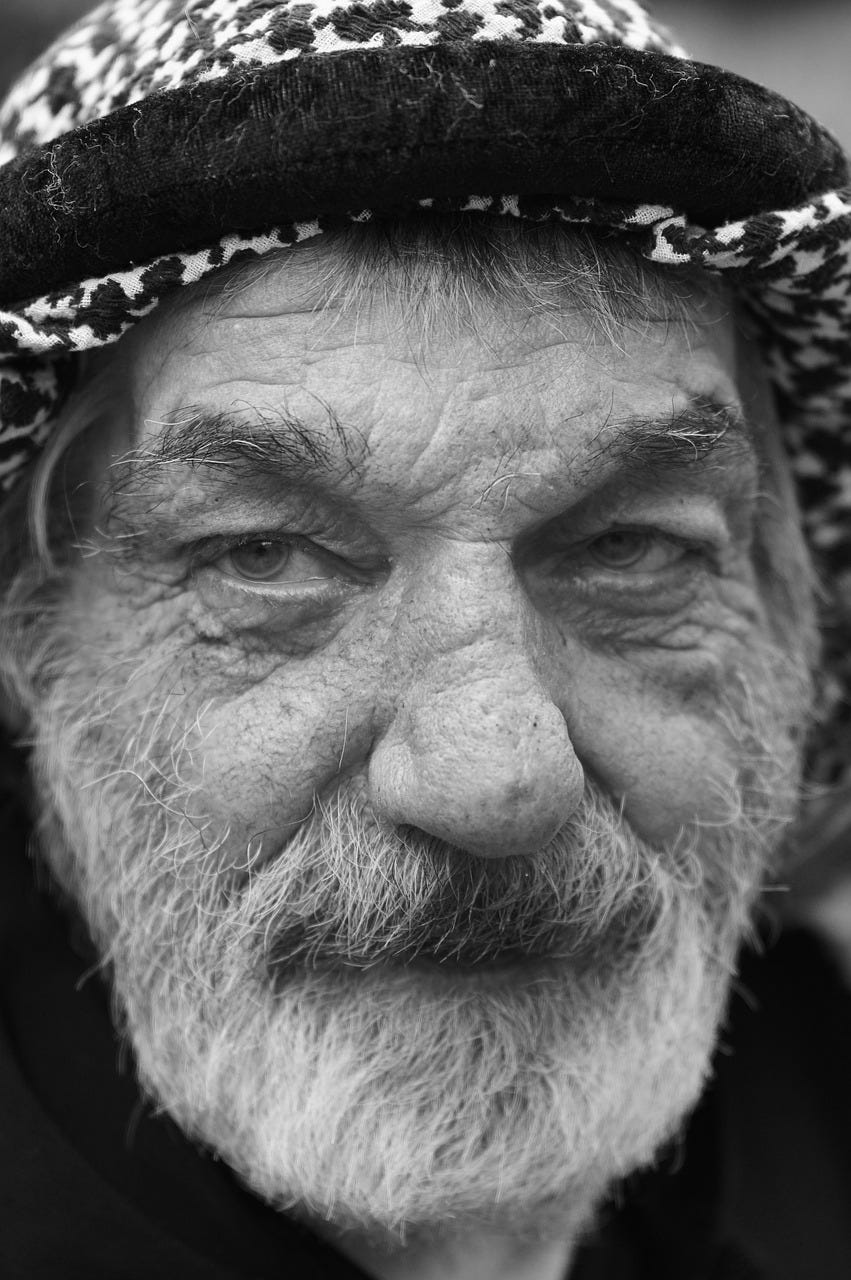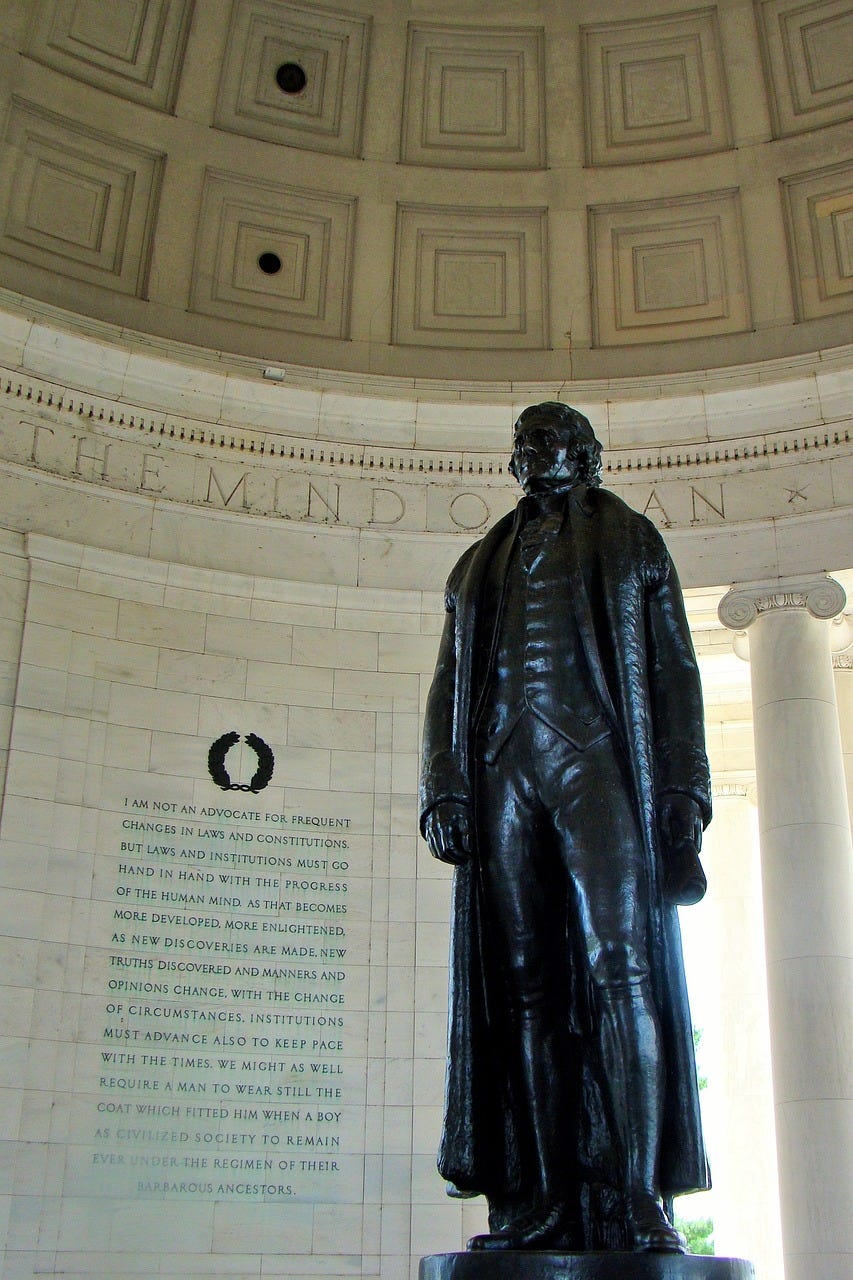Freedom Fighter or Terrorist?
“When law and morality contradict each other, the citizen has the cruel alternative of either losing his moral sense or losing his respect for the law”
Written by Neil Gonsalves for Seeking Veritas on Substack
(Image by Dimitris Vetsikas from Pixabay)
In 1948 Al Ednam Abidam was an active and vocal political dissenter. He strongly disagreed with the policies of his government and vehemently opposed the laws of his country. His early work as an activist was largely non-violent and consisted of organizing strikes and protests, however the government did not take kindly to the political and civil unrest he was creating; this resulted in his first arrest for treason in 1956.
In the years that followed critical interactions between the government and the population led Abidam to become disheartened and pessimistic about the possibility that peaceful protest could achieve the goals he and other like him were working for. They felt that non-violent measures would not and could not provide the catalyst for change that they so desperately yearned for.
In 1961 they formed an underground militant organization called MK and named Abidam as commander-in-chief. Under his leadership they developed strategies they felt would create sufficient disruption to destabilize the government and the laws of the land. They felt like they had no other options since they could not get their voice heard through recognized channels. MK launched bombing attacks on government targets and coordinated planning for guerrilla warfare directed against their own government.
(Image by Ichigo121212 from Pixabay)
In 1963 following a raid on MK’s organizational hideout, law enforcement found documents for future attacks and warfare tactics. Abidam, along with eleven other MK leaders were arrested and charged under the Sabotage Act. He admitted to many of the charges, but strongly defended his use of violence; despite his impassioned defence - arguments that sought to demonstrate the justification for his actions and place them in the social context he perceived - he was found guilty of four charges of sabotage and sentenced to life imprisonment.
In 1985 the President of his country offered to release him from jail if he renounced violence but Abidam refused and declined the offer for release on those conditions.
In 1989 his country had a newly elected president and with the changing political attitudes of the time, the President decided to release him from jail given he was now 71 years old. - The decision was not universally celebrated, and while there was support to release him based on his time served, others objected given that the US Defence Department listed his organization among fifty-two of the “world’s more notorious terrorist groups”.
Within three years of his release from jail however, he reassumed leadership of his organization.
Al Ednam Abidam remained on the US Terrorist watch list until 2008 when he was 90 years old.
This time under his leadership the organization was managed differently and he made many strides towards realizing the goals he had set out to achieve in his early days as an activist. The work he did was well received by the international community and his story found a more receptive audience in the 1990s.
(Image by Brigitte Werner from Pixabay)
In fact the political and social tides in the global community had changed so much that he was awarded a Nobel Peace Prize in 1993. - A major accomplishment for a previously convicted terrorist, who was still actively listed on the US Terrorist watch list.
One could argue that this was the ultimate example of changing social attitudes and forgiveness and the emergence of a new world that had a different set of morals and values from the one in which he was convicted and sent to jail for crimes he admitted to committing.
(Image by Ross Cains from Pixabay)
In fact with his renewed public appeal and support, his organization was able to mobilize politically becoming a recognized political party in his country. They had won so much public support that his party ultimately emerged victorious in the presidential elections of 1994 - resulting in Al Ednam Abidam becoming the new President of the country.
(Image by freestocks-photos from Pixabay)
The facts of the story above are completely true and not embellished for dramatic effect, it is in the historical record, and is studied in classrooms around the world. It forces us to examine our views on political dissent and challenges the notion that we should always trust our government and our laws.
The story illustrates the famous quote by Frederic Bastiat;
“When law and morality contradict each other, the citizen has the cruel alternative of either losing his moral sense or losing his respect for the law”.
(Image by dcandau from Pixabay)
It forces us to question what we should do if we have tried every legal avenue to address our perceived injustices but they fall upon deaf ears. Do we take the law into our own hands? Do we rely on the notion that time and tides will change the public view? Do we trust that notion presented by Martin Luther King Jr, that believes the moral arc of the universe is long but always bends towards justice? Or, perhaps we should act on the principle put forth by the great and venerated American founding father, Thomas Jefferson, who eloquently stated;
“If a law is unjust, a man is not only right to disobey it, he is obligated to do so”.
In this context do we view the historical actions of Al Ednam Abidam as one of a freedom fighter or a terrorist?
What if I now admit that I spelled his name backwards, and the person whose story I have been retelling is none other than Madiba, - the African root name, by which his people refer to him instead of his English name Mandela.
Does knowing the name change your entire perception of the story? How much did the imagery influence your thoughts? Can you articulate the difference between a freedom fighter and a terrorist?
(Image by Ben Kerckx from Pixabay)
Bio: Neil Gonsalves is an Indian-born Canadian immigrant who grew up in Dubai, U.A.E. and moved to Canada in 1995. He is an Ontario college professor, a TEDx speaker, a German Shepherd lover and a recreational dog trainer.
(The views contained in this article are solely those of the author, intended for opinion based editorial purposes and/or entertainment only. They do not represent the views of any organization we are otherwise associated with.)












